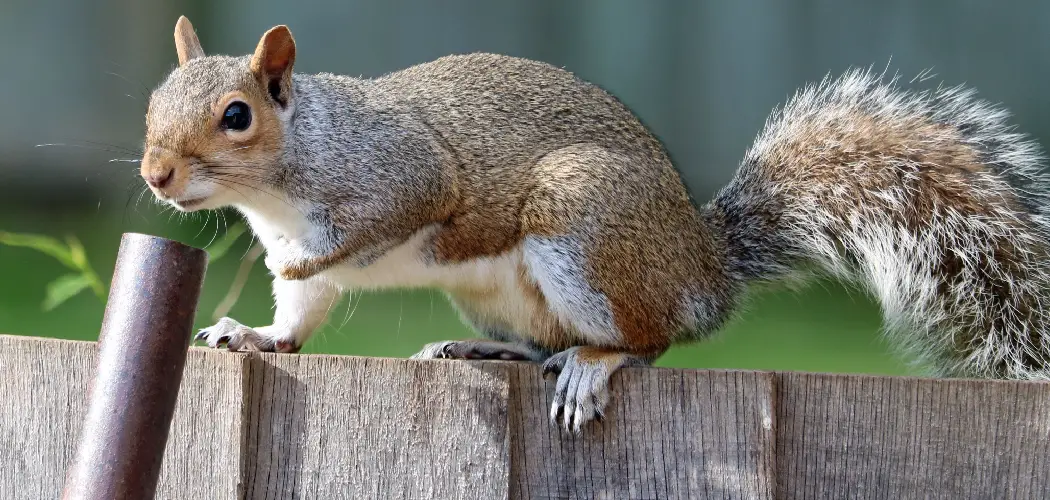Squirrels can cause a great deal of damage to patio furniture by gnawing on plastic, metal, and other types of materials to create nest materials. In addition, they may also chew through fabric cushions and upholstered items. If you’ve ever had a squirrel chew through your patio furniture, you know what an annoying and expensive problem it can be.
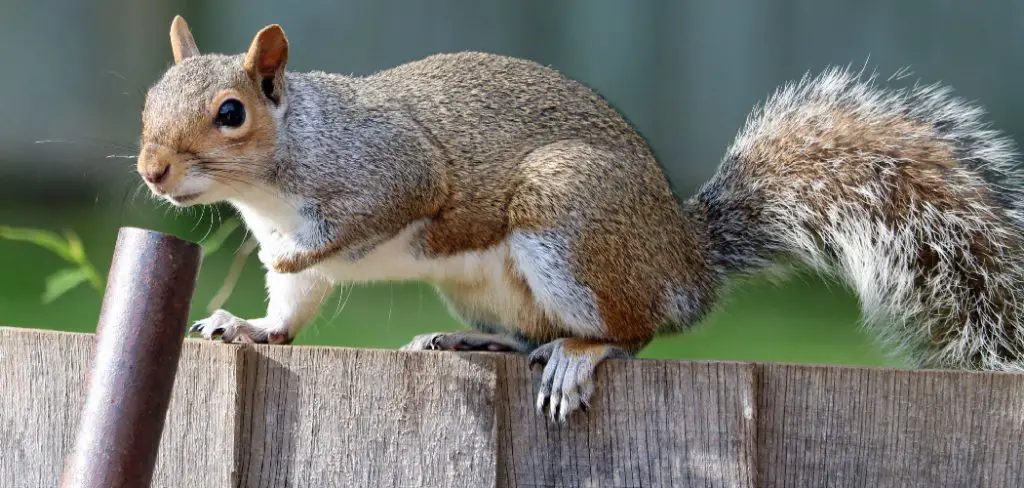
Unfortunately, the damage caused by these little critters is all too common. Luckily, there are ways to keep squirrels from chewing on your outdoor furniture — without resorting to traps or poison. In this blog post, You will learn in detail how to keep squirrels from chewing on patio furniture.
Step-by-Step Processes for How to Keep Squirrels From Chewing on Patio Furniture
Step 1: Place Motion
Install motion-detecting lights around the patio. Squirrels don’t like bright, sudden flashes of light and will avoid them. Motion-detecting lights can be set up to activate whenever a squirrel or other animal approaches the patio.
Spray store-bought repellents on your patio furniture. Squirrels don’t like certain smells, so spraying furniture with medicines containing garlic, cedar oil, peppermint oil, and other similar odors can help deter them.
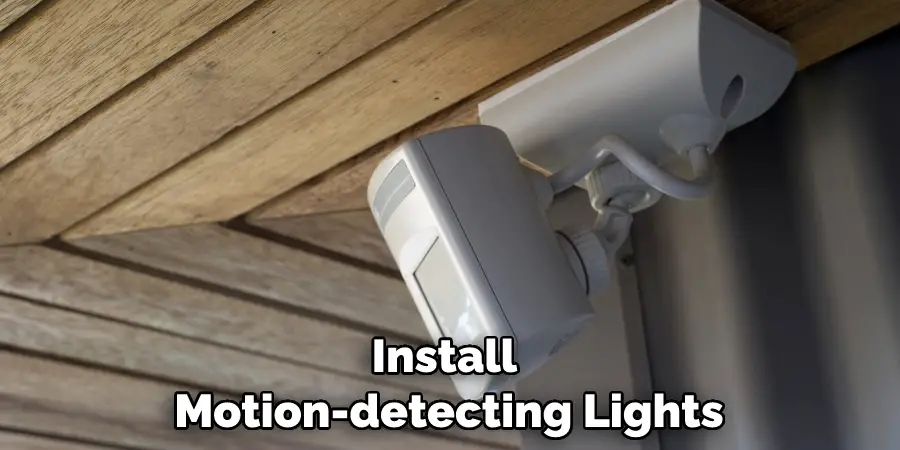
Step 2: Use Scents
Scatter-scented pine cones or other items around the patio that squirrels don’t like the smell of. The scent will permeate the area, making it less attractive for squirrels to hang out in and reducing their chances of chewing on the furniture.
Step 3: Install a Fence
Create a fence or barrier between the squirrels and your furniture. It should be tall enough to keep them away and also have small gaps that squirrels can’t fit through.
Step 4: Plant Repellent Plants
Plant certain plants around your patio furniture which are known to repel squirrels. These include lavender, marigolds, daffodils, chrysanthemums, and rue. The squirrels might use grease poles or other objects to get to your furniture. This will make it difficult for them to climb up and reach the furniture.
Step 5: Remove Food Sources
Remove any food sources in your yard, such as bird feeders, garbage cans, pet food dishes, and other items that provide the squirrels with a quick snack.
Step 6: Keep the Ground Clear
Regularly clear away any low-hanging branches or shrubs that squirrels could use to jump on or climb up onto your furniture. This will also help keep rodents away.
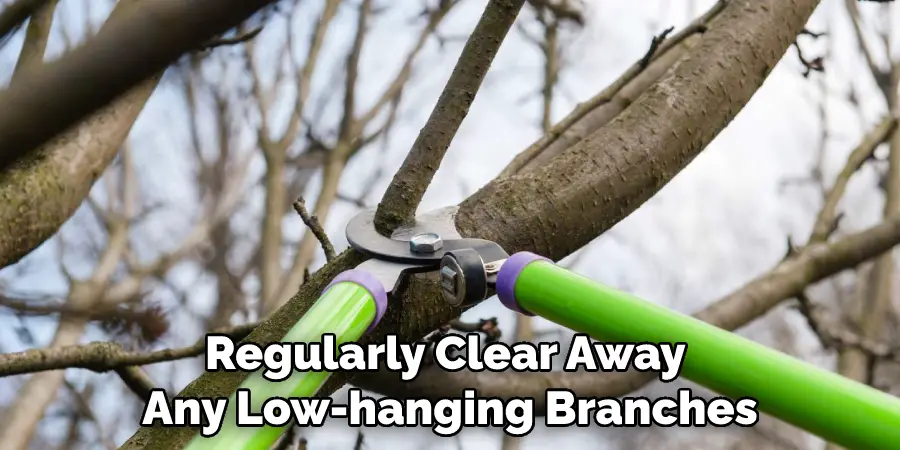
Step 7: Cover Furniture
Cover your furniture with a tarp or sheet when not in use. This will help prevent squirrels from getting to it and chewing on it. Set up humane animal traps around the patio to capture any stray squirrels that are causing trouble. Once captured, the squirrels can be released safely, far away from your furniture.
Step 8: Wrap Furniture
Wrapping the legs of your patio furniture with sheet metal or other materials that squirrels won’t want to chew on will also help keep them away from it.
Step 9: Clean Up Regularly
Keep your patio furniture and surrounding area clean. Remove any food or other potential attractants, such as bird seeds, that may lure squirrels to the area. Cleaning regularly will also help prevent diseases from spreading among animals in your yard.
Following these steps, you can keep squirrels from chewing on your patio furniture and enjoy the outdoor space in peace.
Tips for How to Keep Squirrels From Chewing on Patio Furniture
- Remove any food sources that may be attracting squirrels to your patio furniture. This includes bird feeders, pet food, and other snacks you may leave out in the open.
- Store all food items indoors in airtight containers or sealed bags when not in use. This will help keep rodents away from your patio furniture.
- Trim any trees or shrubs that are within a few feet of your patio furniture. This will help keep squirrels out by making it harder for them to jump onto the furniture.
- Install motion-activated lights and/or sprinklers on or around your patio furniture to prevent unwelcome visitors.
- Apply a commercial repellent to your patio furniture and around the perimeter of your patio to help deter squirrels from entering the area.
- Cover any exposed wires or cords on the patio furniture, as these can be attractive for rodents to chew on.
- Place mesh screens or netting over your furniture to further deter squirrels from getting onto the furniture.
- Place mothballs, ammonia-soaked rags, or fabric softener sheets around your patio furniture to help keep rodents away.
- Use ultrasonic sound deterrents that emit high-frequency sounds, which will repel rodents from the area.

Following these tips will help keep squirrels and other rodents away from your patio furniture so you can enjoy it without worrying about chewing or damage.
How Often Should You Take Preventative Measures Against Squirrels Chewing on Your Furniture?
Anyone who has ever had their patio furniture chewed on by a squirrel knows how frustrating it can be. Not only does it ruin the look of your outdoor space, but it can also be expensive to replace damaged furniture. To prevent squirrels from chewing on your furniture, there are a few simple steps you can take.
First, ensure that no food or water is available for them. This means keeping your outdoor area free of any spilled food or drinks and not leaving pet food or water dishes out overnight. Secondly, you can discourage squirrels from chewing by spraying a bitter-tasting substance on your furniture.
Several commercial products are available for this purpose, or you can make your own mixture using ingredients like vinegar or hot sauce. Finally, remember to keep an eye on your furniture and repair any damage as soon as possible. Taking these preventative measures can help keep your patio furniture looking great for years to come.
How Can You Protect Your Outdoor Furniture From Becoming a Snack for Squirrels?
Winter is just around the corner, so squirrels will look for ways to keep warm. Unfortunately, that often includes chewing on outdoor furniture. If you’re tired of finding your patio chairs with bite marks, you can do a few things to deter these furry critters.
First, try spraying your furniture with a mixture of water and vinegar. The acetic acid in the vinegar is unpleasant for squirrels and will also help repel other pests like ants and spiders. You can also try covering your furniture with sheets or tarps when you’re not using it.
This will provide a physical barrier that squirrels will be less likely to breach.
Finally, make sure to keep your yard clean and free of potential food sources. If there’s nothing for squirrels to eat, they’ll be less likely to stick around. By taking these simple steps, you can help to keep your outdoor furniture in good condition all winter long.
Is It Necessary to Hire Any Professional to Keep Squirrels From Chewing on Patio Furniture?
Yes, hiring a professional wildlife service might be necessary depending on the severity of the situation and your local laws. A wildlife service will be able to advise you on the best ways to prevent squirrels from chewing on patio furniture, as well as provide humane solutions for the removal of any squirrels that may have already taken up residence in your yard.
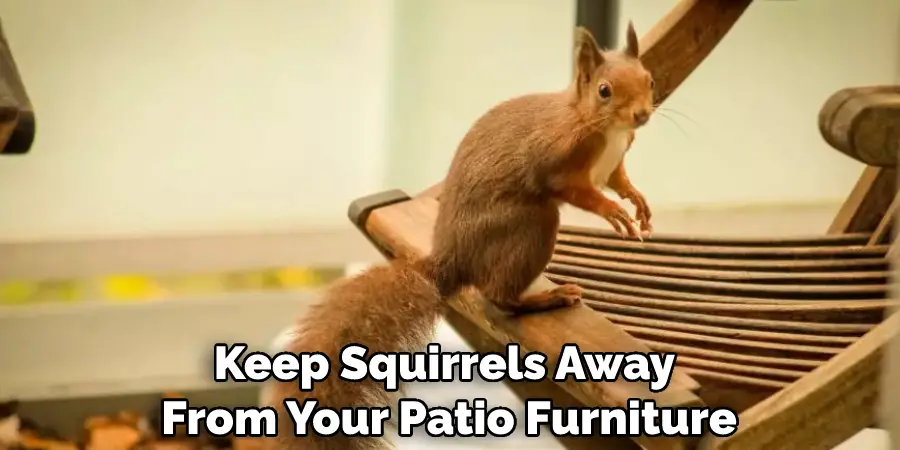
In addition, a wildlife service can provide the necessary materials and tools to help you keep squirrels away from your patio furniture. They may suggest using motion-activated lights or sprinklers that will startle any squirrels that come near your property.
These services will also be able to explain the importance of securing food sources, such as bird feeders, and utilizing fencing to keep squirrels away from your patio furniture.
Although it may be tempting to take matters into your own hands and try to solve the problem on your own, hiring a professional can ensure that the job is done efficiently and humanely.
A wildlife service will have the experience necessary to advise you on how best to keep squirrels away from your patio furniture and provide the necessary materials and tools for successful prevention.
How Much Will It Cost if You Hire a Professional?
Squirrels are one of the most common nuisance animals in the United States. While they may be cute, their constant chewing can quickly destroy patio furniture, flower pots, and other outdoor items. If you’re tired of repairing damage caused by these critters, you may wonder how much it will cost to hire a professional squirrel removal service.
The cost of such a service will vary depending on the size of your property, the number of squirrels present, and the extent of the damage. However, you can expect to pay anywhere from $100 to $1,000 for professional squirrel removal. While this may seem like a lot of money, it’s important to remember that the cost of repairs and replacement items can easily exceed this amount. As such, hiring a professional to get rid of squirrels is often a wise investment.
Conclusion
Chewing on patio furniture can be a real nuisance for homeowners. Not only is it unsightly and potentially costly to repair, but it can also be dangerous. While there is no surefire way to prevent squirrels from chewing on your patio furniture, there are some helpful tips that you can use to keep them away. One of the most effective methods is to use a repellent spray, which can be applied directly to the furniture.
Also, choosing materials that are less attractive to squirrels, such as wood and metal, rather than plastic or vinyl, can help prevent them from getting too close. Finally, covering your patio furniture when not used can also be a great deterrent.
With these methods, your patio furniture should remain safe from chewing squirrels for years to come. I hope this article has been beneficial in learning how to keep squirrels from chewing on patio furniture. Make Sure the precautionary measures are followed chronologically.
You Can Check It Out to Waterproof a Wooden Table for Outdoor Use

